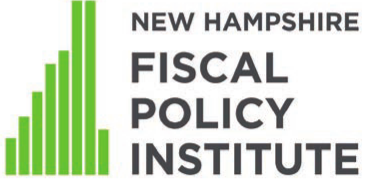About one in three Granite State adults reported that paying for usual household expenses was somewhat or very difficult between June 28 and July 10, 2023, according to data from the U.S. Census Bureau’s Household Pulse Survey. This percentage has been relatively stable for the last two years but is significantly higher than the approximately one in five adults who reported difficulty affording expenses during the summers of 2020 and 2021.
The U.S. Federal Reserve’s Survey of Household Economics and Decision-making is a different barometer of financial well-being that reports the percentage of U.S. adults who can pay an unexpected $400 expense using cash or equivalent means. Among the 11,667 U.S. adults surveyed in October 2022, slightly more than one in three (37 percent) reported they would not pay for an unexpected $400 expense using cash or equivalent means. This figure is an increase from last year and a return to pre-pandemic levels after a decline in 2020 and 2021, which corresponds with some of the changes in the New Hampshire-level data.
The trends in these data may reflect financial vulnerability related to the end of key federal pandemic assistance, like the Advance Child Tax Credit, which was helping households cover usual expenses. A recent National Bureau of Economic Research working paper indicated that for every $100 of ACTC payments, an estimated $31 was spent on housing, $28 was spent on food, and $15 was spent on goods and services for children.
Granite State residents may have difficulty paying typical expenses due to inflation increasing the cost of living. According to the Massachusetts Institute of Technology’s Living Wage Calculator, a New Hampshire household with two working adults and one child requires an annual 2023 income of $82,937 to cover typical expenses. Based on the most recent 2021 estimates, the average New Hampshire family has 2.96 members and a median income of $108,208. While the median family income is above the estimated cost for a three-person household, nearly one in three families had incomes below $75,000, and approximately one in six had incomes below $50,000. These figures suggest a substantial portion of New Hampshire families cannot afford typical living expenses.
The new biennial state budget addresses some challenges related to household budgets, as do several initiatives funded by flexible, federal American Rescue Plan Act aid. However, as economic conditions change, additional policy initiatives may be key to help bolster the long-term financial well-being of Granite State residents.
Phil Sletten is research director of the NH Fiscal Policy Institute. The NHFPI Policy Memo is a partnership of the NH Fiscal Policy Institute and NH Business Review.